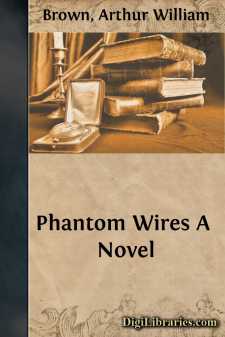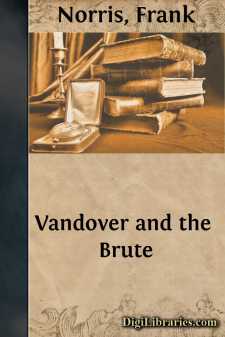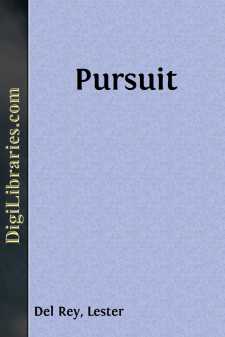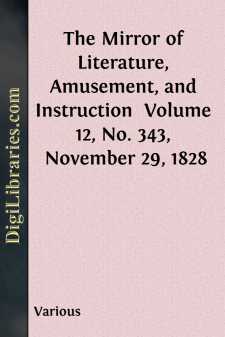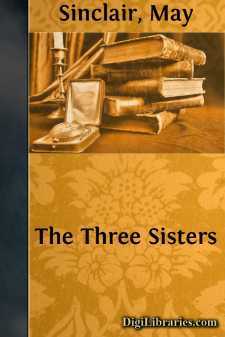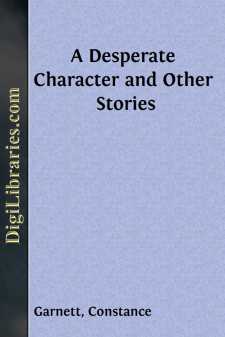Categories
- Antiques & Collectibles 13
- Architecture 36
- Art 48
- Bibles 22
- Biography & Autobiography 813
- Body, Mind & Spirit 142
- Business & Economics 28
- Children's Books 17
- Children's Fiction 14
- Computers 4
- Cooking 94
- Crafts & Hobbies 4
- Drama 346
- Education 46
- Family & Relationships 57
- Fiction 11829
- Games 19
- Gardening 17
- Health & Fitness 34
- History 1377
- House & Home 1
- Humor 147
- Juvenile Fiction 1873
- Juvenile Nonfiction 202
- Language Arts & Disciplines 88
- Law 16
- Literary Collections 686
- Literary Criticism 179
- Mathematics 13
- Medical 41
- Music 40
- Nature 179
- Non-Classifiable 1768
- Performing Arts 7
- Periodicals 1453
- Philosophy 64
- Photography 2
- Poetry 896
- Political Science 203
- Psychology 42
- Reference 154
- Religion 513
- Science 126
- Self-Help 84
- Social Science 81
- Sports & Recreation 34
- Study Aids 3
- Technology & Engineering 59
- Transportation 23
- Travel 463
- True Crime 29
Sort by:
THE END OF THE TETHER Durkin folded the printed pages of the newspaper with no outward sign of excitement. Then he took out his money, quietly, and counted it, with meditative and pursed-up lips. His eyes fell on a paltry handful of silver, with the dulled gold of one worn napoleon showing from its midst. He remembered, suddenly, that it was the third time he had counted that ever-lightening handful...
more...
by:
Frank Norris
Chapter One It was always a matter of wonder to Vandover that he was able to recall so little of his past life. With the exception of the most recent events he could remember nothing connectedly. What he at first imagined to be the story of his life, on closer inspection turned out to be but a few disconnected incidents that his memory had preserved with the greatest capriciousness, absolutely...
more...
CHAPTER I A CACTUS-PLANT For life, with all it yields of joy and woe, And hope and fear,… Is just our chance o' the prize of learning love,— How love might be, hath been indeed, and is. BROWNING'S "A Death in the Desert." Everything about Lovey Mary was a contradiction, from her hands and feet, which seemed to have been meant...
more...
by:
Lester del Rey
ear cut through the unconscious mind of Wilbur Hawkes. With almost physical violence, it tightened his throat and knifed at his heart. It darted into his numbed brain, screaming at him. He was a soft egg in a vast globe of elastic gelatine. Two creatures swam menacingly through the resisting globe toward him. The gelatine fought against them, but they came on. One was near, and made a mystic pass. He...
more...
I. How Brigadier Gerard Lost His Ear It was the old Brigadier who was talking in the cafe. I have seen a great many cities, my friends. I would not dare to tell you how many I have entered as a conqueror with eight hundred of my little fighting devils clanking and jingling behind me. The cavalry were in front of the Grande Armee, and the Hussars of Conflans were in front of the cavalry, and I was in...
more...
by:
Various
THE ADMIRALTY-OFFICE. The Admiralty Office, Whitehall, has few pretensions to architectual beauty. It is, however, to use a common phrase, a commanding pile, and its association with Britain's best bulwarks—her NAVY—renders it an interesting subject for representation. The Admiralty-office adjoins to the north side of the Horse Guards, and was erected by Ripley, in the reign of George II., on...
more...
by:
Michael Barrett
INTRODUCTION The title of Scottish, applied to the holy ones whose names occur in these short notices, must be understood to refer not so much to their nationality as to the field in which, they laboured or the localities where traces of their cultus are to be found. The Calendar here submitted does not pretend to be exhaustive; the saints therein noted are those who appear prominently in such records...
more...
by:
George Bell
DERIVATION OF THE WORD "ISLAND." Lexicographers from time to time have handed down to us, and proposed for our choice, two derivations of our English word Island; and, that one of these two is correct, has, I believe, never yet been called in question. The first which they offer, and that most usually accepted as the true one, is the A.-S. Ealand, Ealond, Igland; Belg. Eylandt: the first...
more...
by:
May Sinclair
I North of east, in the bottom, where the road drops from the High Moor, is the village of Garth in Garthdale. It crouches there with a crook of the dale behind and before it, between half-shut doors of the west and south. Under the mystery and terror of its solitude it crouches, like a beaten thing, cowering from its topmost roof to the bowed back of its stone bridge. It is the last village up...
more...
The six tales now translated for the English reader were written by Turgenev at various dates between 1847 and 1881. Their chronological order is:— Pyetushkov, 1847 The Brigadier, 1867 A Strange Story, 1869 Punin and Baburin, 1874 Old Portraits, 1881 A Desperate Character, 1881 Pyetushkov is the work of a young man of twenty-nine, and its lively, unstrained realism is so bold, intimate, and delicate...
more...


